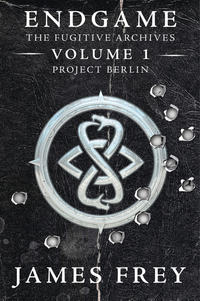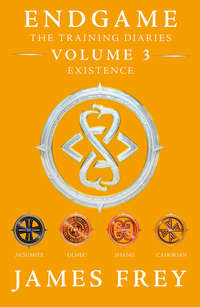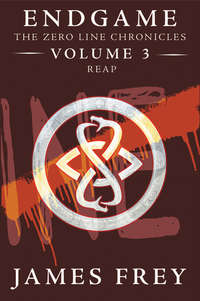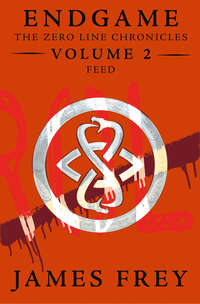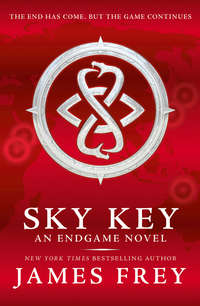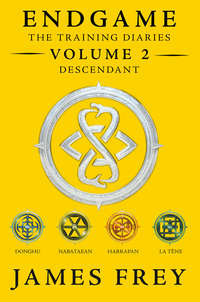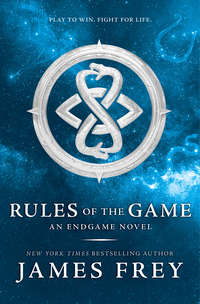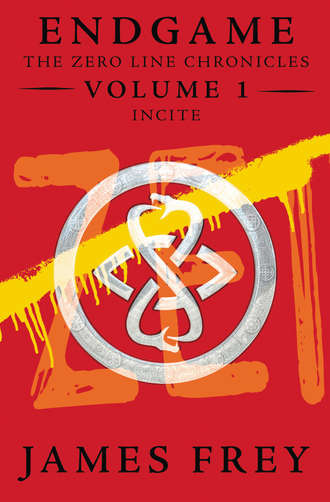
Полная версия
Incite
“I thought you were on scholarship.”
“Pays for tuition, but nothing else. My dad has plenty of money, but he wants me to make my contribution, which is a buck sixty-five per hour, fifteen hours a week. But it could be worse. He originally didn’t want me to go to college at all.”
“You should be a janitor. We make one eighty.”
“I’d rather flip burgers.”
“What about your internship? That doesn’t pay?”
“Nope, but that’s okay, because I don’t really do anything. I make coffee, I take notes in meetings, and I get ogled by men who are divorcing their wives. But I have a desk with a window on the eighteenth floor, and my mom took me on a shopping spree for business clothes. That was fun. You should see me before I change clothes after work. I look like a Republican.”
“Scandalous,” I said with a laugh. “I could see you as a big-name lawyer in the city.”
She grimaced. “That’s because you don’t know me very well yet. I should get paid just for having to wear high heels every day. I’m a country girl, born and bred. I hated leaving the ranch and moving here. Give me boots and a rifle and I’m your girl.”
“I liked that about Pasadena. You can be over the hills and out of the city in ten minutes. Well, scratch that. I don’t like Pasadena. It’s too suburban—is that the word I’m looking for? It’s too bland. Nothing happens there.” I laughed. “The thing I just said that I liked about it was how easy it is to get out of there.”
“Never been there. Is it close to Disneyland?”
“About an hour. If you’re still a country girl at heart, how did you ever get into law?”
“I like to argue,” she said, and laughed.
John sat down with us and put a foot on the coffee table. He was wearing boots—looked like alligator skin.
“Mike, answer a question for me.”
“Sure,” I said. “Anything.”
“I don’t know Pasadena, but there was something in the paper about it a couple weeks ago. Made me think. There was an apartment fire. A guy had gotten out safely, but he ran back inside. They found his body in a hallway—they speculated that he’d been knocking on all the doors. Now, he wasn’t the manager. Neighbors said he was quiet, and no one really knew him.”
I nodded. I’d heard about the fire. “So what’s the question?”
“Why did he run back in? He was safe. The fire department was there.”
“Do you want details from a Pasadena native? Or just my opinion?”
“Just your opinion,” John said. “Hypothetical. Let’s say you’re the guy.”
“I think he was just a good guy. Wanted to help. Got out of his depth.”
A waitress brought him a new Scotch and water, but he seemed in no hurry to drink it. “You know, the Mormon missionaries came knocking on my door once. They have a saying: ‘It becometh every man who hath been warned to warn his neighbor.’ You sure you don’t want a drink?”
I shook my head. “No,” I said, and decided to change the subject. “Tell me about that game. What’s that?”
“Endgame?” John asked, and took a sip.
“It’s scary shit,” Tommy said.
Mary squeezed my hand.
“There’s a lot to know,” John said. “The history of it would take hours to tell. I’ll start with a question—what do you believe about the end of the world?”
I laughed for a moment, because I didn’t think he was being serious. But I was the only one laughing. “The end of the world? I don’t know. My mom is the churchgoer in our family. A Baptist. I’ve never paid much attention. Raining fire and brimstone, and all the sinners go to hell and the good people go to heaven, I guess? Why’s that important?”
“You want to know about Endgame, right? Mary, tell us what you know,” John said.
“What I know? Or what I was taught in catechism?”
“First what you were taught.”
She brushed some loose strands of hair out of her face. “I was raised Catholic. The Bible says that Christ will return, and that no one knows the time of his coming. The wicked will grow worse and worse and the Antichrist will come and the entire world will fall away. Finally Christ will come down to purge the wicked and sit in judgment of all people. That’s what I was taught, anyway.”
I smiled, first at her and then at John. “Are we really sitting in the back of a bar talking about the end of the world? Do you know what I’d be talking about if I was back home? Furniture. And if I went out with my friends—which I never had time to do—we’d talk about baseball. And I hate baseball.”
“Oh, you’ve just never seen good baseball,” John said with a laugh. “But yeah—the end of the world. It’s is a crazy topic. You’ve got to be a little bit nuts to deal with it all. Tommy, how about you? What do you believe?”
Tommy rolled his eyes. “I’m Hopi. Everything is different for us.”
“Yeah,” John said, “but I like to hear it. And it will help Mike understand.”
“There are, supposedly, nine signs to watch for. The first one is that white men will come. As you can see, that one’s already happened.” Tommy laughed. “There are prophecies about covered wagons and longhorn cattle and telescopes. But it all comes down to the ninth sign. All the others have happened already. We’re currently in the Fourth World, and the ninth prophecy says we’re going to hear a crash in the heavens and see a blue star. The Blue Star Kachina will be revealed and take the faithful to the Fifth World.”
“So,” I asked, “what happens if you’re not Hopi?”
He pointed at Mary. “What happens if you’re not Catholic?”
John took a sip of his drink, looked at me, and said, “What do you think the truth is?”
“Nuclear holocaust,” I said. “Sooner or later.”
“And you don’t believe in a god or a kachina or the Rapture or anything like that?”
“I’m not saying there definitely isn’t a god. I’m just saying I never really believed in one, like you.”
John eyed me carefully. “I don’t believe in God,” he said. “I believe in Endgame.”
“What?” I asked. “What religion is that?”
“It’s not a religion. It’s the end of the world. It could start at any moment. I don’t know.”
I looked at Tommy, who stared at me like he was waiting for me to say something. Mary still held my hand, her other holding her bottle of Budweiser. She looked back at me as I stared, our faces close together.
“This,” I said, turning back to John and laughing, “is why I never drink. You guys are freaking me out.”
“I like you, Mike.” John leaned back and laughed. “Listen, when do you start work?”
Mary’s hand brushed against mine, but I tried to focus on John. “Uh … not till next week.”
“We’re having a get-together this weekend with a lot of my friends. Up at Mary’s ranch. Nothing formal, just fishing and shooting and hiking. Come with us—it’ll be fun.”
“Thanks, man. But I don’t have a car.”
“That doesn’t matter,” John said. “We have plenty of people coming who can give you a ride. Why don’t you get a lift with Mary?”
She nodded emphatically. “I have my dad’s old Buick. I’ll pick you up.”
Tommy spoke up. “C’mon, Stavros. It’s cool. You should come.”
I never did anything like this. And not only that, but I never did it so spontaneously. “Well, I don’t know how to shoot, and I haven’t fished since I was in the Boy Scouts, but sure, sounds good.”
I was happy. I’d found a group of friends who felt like they could be my people. And for a moment I forgot about all the talk of the end of the world as John bought another round of drinks.
Tommy and I walked back to our dorm. He was drunk—we’d played pool for two straight hours. For my first day of college, this had been pretty cool. I’d met a bunch of new people, including a beautiful girl who’d stayed next to me most of the night. I had no idea where that had come from—I didn’t know what she meant by it.
I hoped it meant something.
“Tommy,” I said, “how long have you known Mary?”
“Not long. I only started hanging out with that group … um … during fall semester?”
“So you’re pretty new?”
“Yeah,” he said, his words slightly slurred from all the beer. “I guess. She’s been with the group for only a little longer than me. But I always get the feeling that she’s known John forever.”
“Forever?”
“For a long time. I don’t know. Longer than a year anyway. Are you interested in her?”
“Well, yeah.”
“Hey man, that’s cool. She’s not my type anyway.”
We turned onto a street without any streetlights.
“A totally hot girl with deep blue eyes and blond hair isn’t your type? She’s on a scholarship at Stanford, so she’s smart too. What is your type?”
“I like brunettes,” he said.
“Well, your loss is my gain.”
Tommy winked at me. “I assume this means you’re coming on our ranch trip?”
“A whole weekend with Mary?” I said. “Are you kidding? Of course I’m in.”
I really did want to go—and not just because of Mary. I’d had this picture in my head of what Berkeley was supposed to be like, and suddenly I was living it. Getting together with friends, talking about big issues—the war, the government. Even the end of the world.
Of course, at that point I had no idea what I was getting myself into.
CHAPTER THREE
We all met in the grocery store parking lot Friday at five in the morning, and I was stunned by who showed up. I thought it was going to be just our group, but it turned out to be a whole lot bigger than that. There were the people I knew—Mary, Tommy, Jim, Julia, and John—but there were also many I’d never met.
Other than a change of clothes, I hadn’t brought anything with me, but most had fishing poles or shotguns or deer rifles. When we got there, Mary threw her arms around me in a huge hug. She smelled like flowers, and I let my face nuzzle in her hair. My heart sped up at what that hug could mean. But then she gave the same big hug to Tommy, and another one to John. She was a hugger, I guessed.
She looked like the youngest girl there, and I was probably the youngest guy. I introduced myself to everyone.
“We’re going to have fun today,” said a girl named Kat, smiling at me. She was in her twenties, super skinny, and a nurse. She gave me a hug too, and whispered in my ear, “This may seem crazy at first, but you’re going to love it.”
What? I thought. It seemed like such an odd thing to say. I figured she meant I’d love the group—the fishing and shooting.
“The old guy,” I asked Kat. “Who’s he?”
“That’s Rodney. And he’s only thirty-two,” she said. “That’s not old. It’s his beard. But you should get to know him—he owns a deli in Oakland. And watch for it: he’ll ask you to go fishing with him, and he’ll make a bet on who will catch the first fish. Don’t take him up on it. I swear, he could get a fifteen-pound bass out of a pothole.”
Mary came and took my hand and led me to her car. “It’s a coupe,” she said, “so there’s only room for the two of us.”
“Great,” I said. She was dressed in jeans and a T-shirt that showed her curves, and I couldn’t believe Tommy wasn’t interested in her. She was beautiful. Her hair was loose and long, and her skin was soft and warm in my hand. I couldn’t believe how lucky I was that we had the whole car ride to ourselves.
Once everyone had arrived—there were eight cars and 21 people—Mary and I pulled out of the parking lot and headed west. Her ranch was five hours north. I’d heard Northern California was pretty, and she said there were lakes and rivers and hills on her family’s property.
“Do your folks know you’re going up there?” I asked.
“What makes you ask that?” she said, tilting her head.
“Just curious.”
“No,” she said, her expression suddenly tense. “They don’t. And they can’t find out, or I’m dead.”
“So we have to keep the place nice and tidy?”
“Exactly.” Mary glanced over at me, noticed I was smiling. Her face loosened up, and she laughed. “Really, though, my parents don’t use the ranch for much anymore. So they don’t care. In the spring my dad will go up and make sure the fences are okay, and in autumn he still takes us hunting. The ranch is really big—have I said that? It’s fifty-five thousand acres.”
“Wow,” I said. I knew from my time with the Forest Service that that was enough land to get seriously lost in. It could cover whole mountain ranges.
“My oldest brother owns a feed store up in Klamath Falls, Oregon. We keep expecting him to ask for the land so he can start his cattle operation, but so far he hasn’t. His wife is from there, and I think she wants to stay. For now everything works out well for the ZL, though.”
“The ZL?”
“Oh,” she said, glancing over at me, like maybe she’d said something she shouldn’t have. “That’s us. The group of us. It stands for Zero line.”
“What does that mean?”
“It means … basically, it means that we consider each other family. You know how people talk about their bloodline? We—this group—call ourselves Zero line. We’re our own kind of family.”
“I like that idea,” I said. “God knows I’d like to distance myself from my own family.” Mary laughed. I loved her laugh: so quick and light. “Speaking of family,” I said, “where does yours think you are this weekend?”
Mary laughed. “Back at school for a workshop. There are just some things you don’t want to tell your parents, you know? They’re not the most open-minded people in the world. My dad—forget about sneaking onto the ranch. He wouldn’t care about that too much. But if he knew I was with a boy from Berkeley, I think he’d flip.”
“Too liberal?”
“My dad is a staunch Catholic, Nixon-supporting old cowboy. Just the idea that you want to study urban planning is enough to make him think you’re a pot-smoking hippie with newfangled ideas and immoral goals. He thinks a man should work with his hands. He should be a self-made man with big plans for being self-reliant.”
“And has that worked with the rest of the family?”
“Well, I’m the baby,” she said. “And I’m going to college on scholarship, which is the only way that he’d let me go. Otherwise it would be secretarial school. I hate to say it, but my dad is a bit—well, more than a bit—sexist. My two older sisters married men my dad approved of—men like himself. One married a farmer down in Southern California. They grow avocados and artichokes. The second married a contractor who builds big modern houses in San Jose. And my two brothers: the one runs a feed store—I told you that—and the other is a doctor … and he got drafted. His wife, Bonnie, lives with us. She’s a doctor too, and I think that drives my dad crazy, that my mom is effectively raising their baby while Bonnie works.” She glanced over at me, and smiled. “I’m talking a lot. Your turn.”
“I don’t have much to say. I have a dad who … well, he’s an asshole. Not like your dad—a man of principles. You can say that your dad is sexist, but my dad is a cheat and a liar. I worked with him at his furniture store, and he cut every corner and raised prices and gouged people when they needed something. The only way he gets away with it is because he’s the only shop in town, and he makes all of his profit off the old-timers who never realized there are other stores in the greater Los Angeles area. I swear, he once sold a desk, and then, when the customer was writing the check, he explained to her that the drawers were an extra five dollars each. I’ve tried to find some way to describe him, and the only thing I can come up with to adequately do the job is just to call him an asshole. He stays out late, and when he finally comes home, well …”
She was quiet, and I was beginning to wonder if she had been listening, but she finally spoke.
“That’s why you don’t drink.”
“What?”
“You don’t drink. Because your dad’s a drunk … and an asshole.”
I paused. “Well, yeah.”
“Does he hit your mom?”
“What?”
“Does he hit your mom? You don’t have to answer.”
I didn’t know what to say. I didn’t like that she could see right through me. But she was right. “Yes.”
“And you?”
“Sometimes.”
“I’m sorry,” she said, and reached over to take my hand.
“It’s—” I said, and then stopped. “It’s okay. I got out of there. I’m not going to be like him. I have to be different. I have to do something real.”
“Well, it’s a good thing that you fell in with us.”
We drove in silence for most of the rest of the way. I fell asleep and dreamed of furniture until she woke me up as the caravan drove through Susanville, the town where she was born. Her ranch was still 45 miles past it, on a turnoff that was obscured from most of the houses and buildings by a small row of hills. Mary went on and on about this water pump and that orchard and I just listened and wondered what lay ahead.
We came to a turnoff with an archway made of three large logs—one standing on each side of the road and one laid across the top. The words GOLDEN PINE RANCH were carved into the crossbeam. A few of the other cars were already there.
“This is it!” Mary said excitedly. She climbed from her seat and ran over to the padlocked gate.
Beyond the gate, I couldn’t see much more than tall green and yellow grass, sloping upward until the crest of the hill got obscured by forest: tall, straight white firs, short and stubby western junipers, and crooked and droopy gray pines. It reminded me of my time with the Forest Service.
Mary unlocked the gate and swung it open. I drove her Buick through after everyone else had gone in; then she closed the gate and put the lock back in place and mashed it closed with the butt of her hand.
Конец ознакомительного фрагмента.
Текст предоставлен ООО «ЛитРес».
Прочитайте эту книгу целиком, купив полную легальную версию на ЛитРес.
Безопасно оплатить книгу можно банковской картой Visa, MasterCard, Maestro, со счета мобильного телефона, с платежного терминала, в салоне МТС или Связной, через PayPal, WebMoney, Яндекс.Деньги, QIWI Кошелек, бонусными картами или другим удобным Вам способом.


